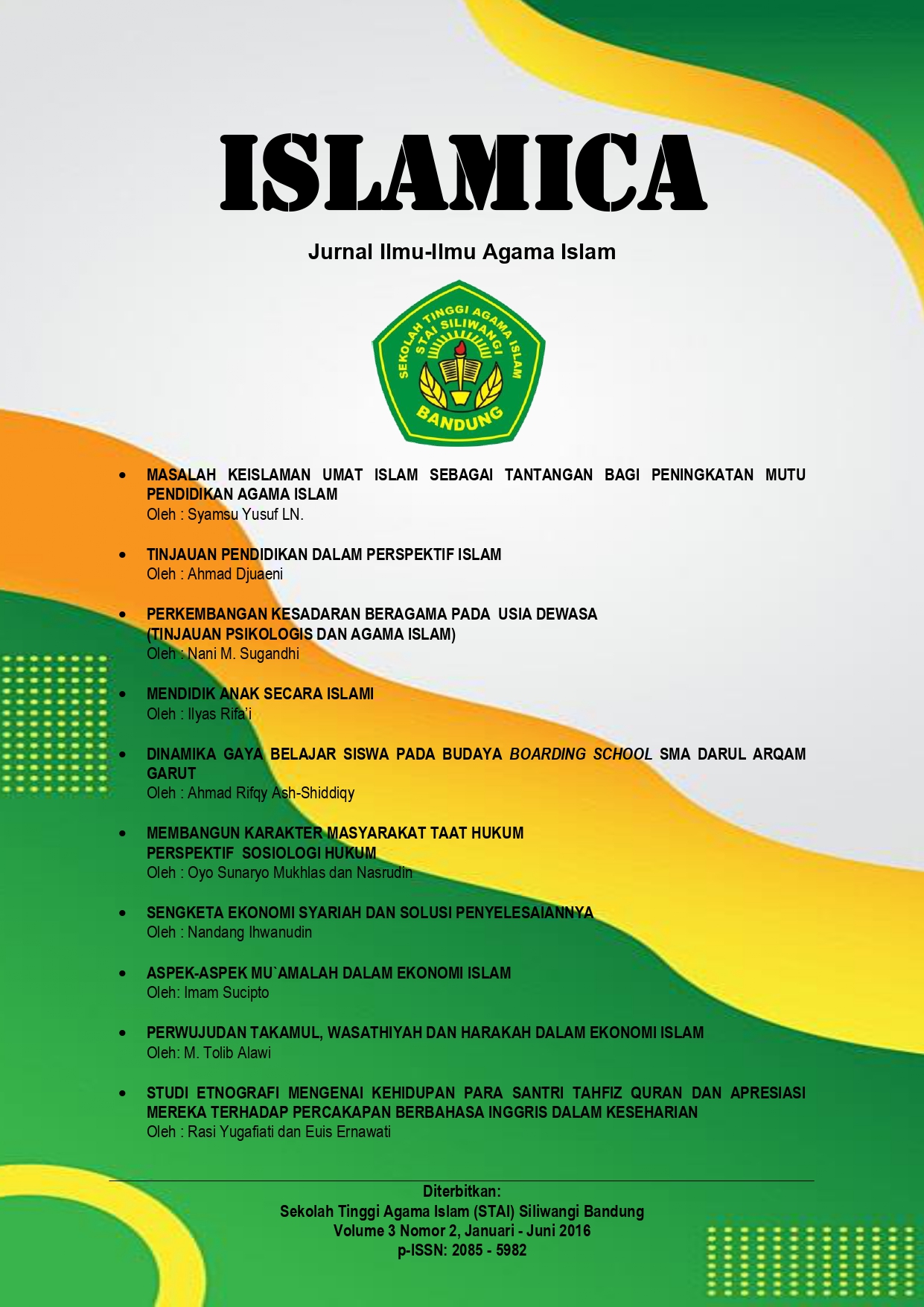Studi Etnografi Mengenai Kehidupan Para Santri Tahfiz Quran Dan Apresiasi Mereka Terhadap Percakapan Berbahasa Inggris Dalam Keseharian
DOI:
https://doi.org/10.59908/islamica.v3i2.53Kata Kunci:
Pupils Tahfiz Quran, Ethnography, English motivationAbstrak
The main issue in this study is the use of English language in daily routine of the Quran Tahfiz students who have a solid agenda. The purpose of this study was to find out about the lives of the Quran Tahfiz Students and their appreciation of English language in everyday life. The method used is qualitative, especially ethnographic studies. The participants are Quran Tahfiz Students in one of the pesantren in Bandung. Data collected through interviews and observations. In order to obtain a rich and deep description, researchers participated as participant (going native) for a period of 10 months. Results from the study showed that some of the students are at the same time as a college student tends to reposition into the audience or observer. Most students who do not understand English at all, just use Indonesian and busied themselves with the special memorizing the Quran. While some Quran Tahfiz Students who had just graduated from high school but have a strong desire to speak English, they have practice every day with the researchers. Based on these results, the researchers suggested that teachers, tutors, and the Quran Tahfiz Pupils who could speak English in order to practice the language and shared understanding in the hostel despite their solid agenda. Researchers also suggest that teachers, tutors, and some of the students to motivate the entire Quran Tahfiz Students at the hostel in order to increase extrinsic and intrinsic motivation.
Referensi
Brown, H.D. (2001). Teaching by principles: an interactive approach to language pedagogy. NY: Pearson Education.
Nunan, D. (2001). Second language acquisition. The Cambridge guide to Teaching English to Speakers of Other Languages. United Kingdom: Cambridge University Press. Pp 87-92.
Gardner, R.C. (1985) The role of attitudes and motivation. Social Psychology and Second Language Learning, Edward Arnold
Hornby, A. S. (1995). Oxford advanced learner’s dictionary of current English. Fifth edition.Great Britain: Oxford University Press.
Järvelä, S. & Niemivirta, M. (2001). Motivation in context: challenges and possibilities in studying the role of motivation in new pedagogical cultures. In S. Volet and S. Järvelä (Eds.), Motivation in learning contexts: Theoretical advances and methodological implications (pp.105-127). London: Pergamon/Elsevier.
Kaplan, A., & Maehr, M. L. (2007). The contribution and prospects of goal orientation theory. Educational Psychology Review, 19, 141-187.
Puengpipattrakul, W. (2007). A study of the relationships among motivation, motivational variables and English language proficiency of the Fourth-year management sciences PSU students. M.A. thesis. Prince of Songkla University: Songkhla, Thailand.
Sharifian, F. (2002). Memory enhancement in language pedagogy: implicatons from cognitive research` TESL-EJ. Vol. 6. No. 2. A-2. September 2002. ISSN 1072-4303.
Unduhan
Diterbitkan
Cara Mengutip
Terbitan
Bagian
Lisensi
Hak Cipta (c) 2016 Rasi Yugafiati, Euis Ernawati

Artikel ini berlisensiCreative Commons Attribution-ShareAlike 4.0 International License.

















